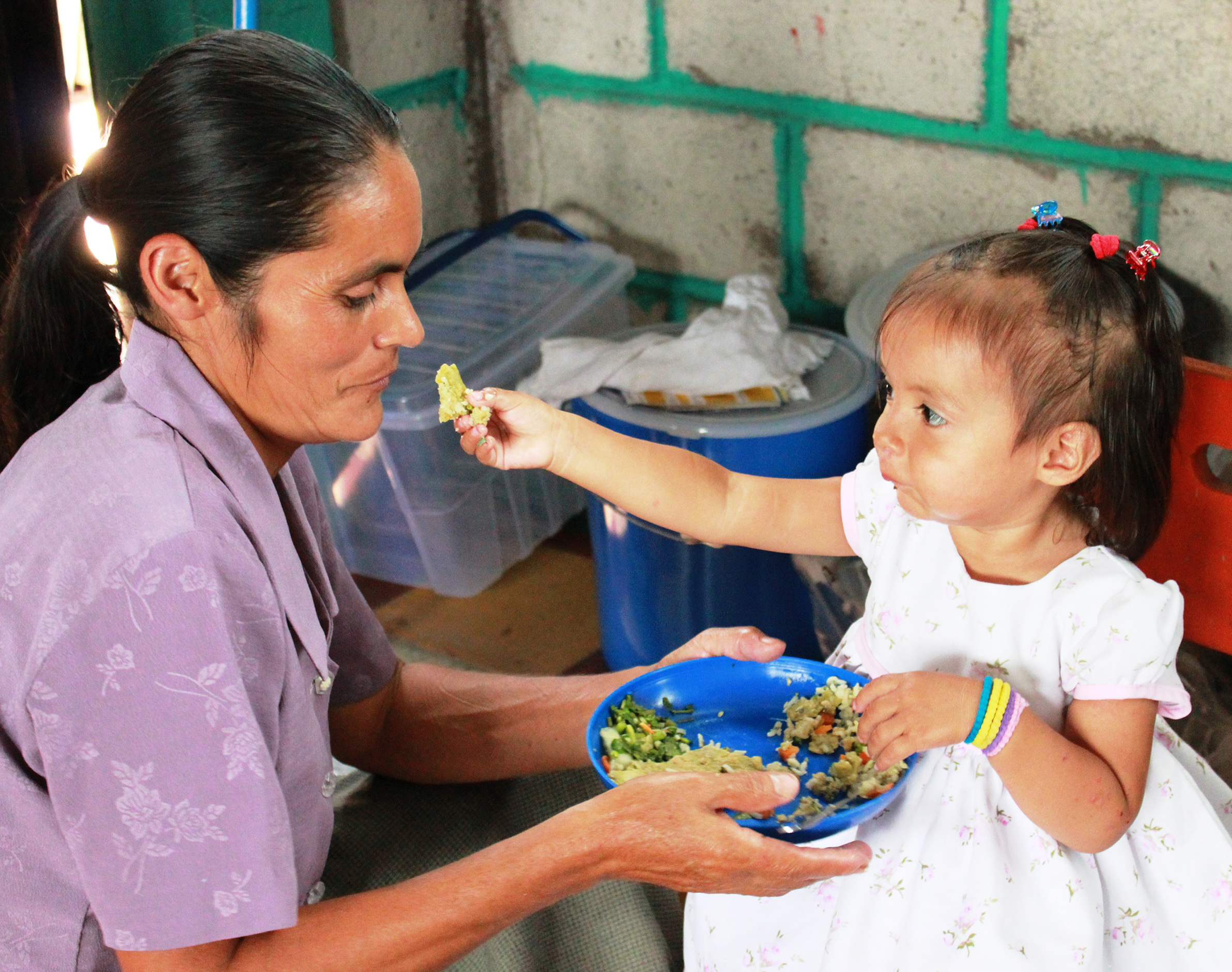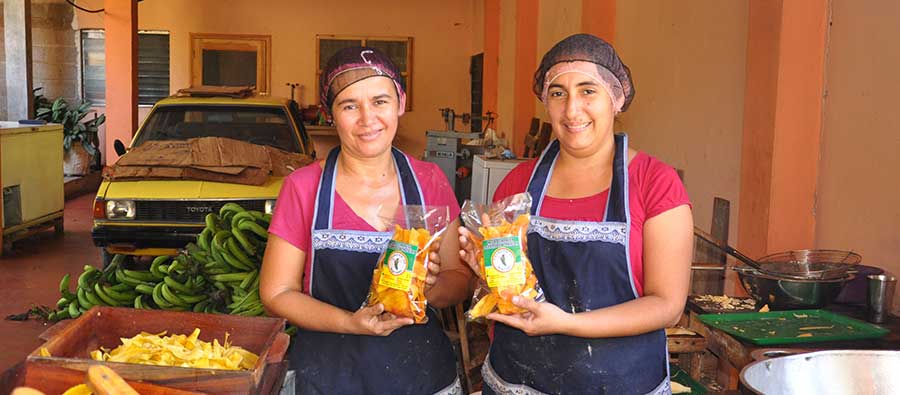Achieving prosperity in the poorest corners of the world hinges on transitioning smallholders from subsistence to farming as a business. At Fintrac, we specialise in making this happen. As a result of our work in 2015 alone, 800,000 smallholders applied new technologies and climate-smart practices, achieving $530 million in sales.
Our success achieving scalable impact is rooted in a multi-functional approach to agricultural development – one that focuses on on-farm productivity and climate adaptation and mitigation, value-addition, and household health and nutrition. Expanding economic opportunities for women and youth also figure prominently in all activities.
Fintrac has helped smallholder families all over the world end the cycle of poverty in their communities by implementing this integrated approach. The farmers we work with have seen productivity, incomes, and business opportunities rise, and household malnutrition fall. From the water used in homes and in the fields, to the technologies that expand high-quality production and processing capabilities, Fintrac works with local partners to ensure rural communities can access the knowledge and critical resources needed to sustainably improve their resilience.
Our work with subsistence corn and bean farmers in Honduras as part of the USAID-ACESSO project (2011 to 2015) offers a prime example. By introducing basic production technologies corn and bean yields doubled and tripled, at no additional cost. Technologies included: seed selection, basic land preparation, proper plant spacing, weed control, and improved fertilizer use and application. The increased yields in basic grains not only demonstrated the impact of these basic practices and technologies, but also provided farmers with the confidence to begin growing new, higher value crops. Subsequent diversified production helped families earn substantially more income than just the improved corn and bean sales.
These same families received simultaneous training in ways that their new income might be invested into household improvements to benefit children’s health, such as purchasing eco-stoves and converting to concrete floors to decrease lung ailments and parasites. Production technicians assisted with establishment of household plots to increase household consumption of green leafy vegetables and other nutritious crops; and livestock specialists helped families improve or expand small-scale livestock farming with chickens, goats, or cattle – again with little or no upfront costs – to increase milk, egg, and protein production for sale and home consumption.
This integrated approach and technical support at the household level provides multiple solutions to the complicated problems associated with hunger and poverty. Over four years of implementation, client households in Honduras, for instance, reported a 50 percent reduction in underweight children under 2 and a 55 percent drop in child stunting. And under this same project, net income for 30,000 households increased by more than $40 million.
Maria Elena Carbajal, of Yaruconte, Copán, saw her one-year-old daughter, Cristel, move from the bottom percentile of weight to a healthier weight category in just six months after following Fintrac-promoted feeding guides and recipes – and reported that she was also more alert and active, indicating healthy cognitive growth.
Meanwhile, in Santa Bárbara, Fintrac helped two young women to grow their small plantain processing business. They purchased raw plantains from Fintrac-supported smallholders previously only growing corn and beans, and received technical assistance in product development, packaging, and labeling. Today, these successful entrepreneurs are supplying large regional buyers and processing 1,500 plantains a day, investing profits into their business and their households.

Maria Elena feeds her daughter Cristel at an inaugural training event at a Fintrac-supported health centre. “Thanks to this program, Cristel’s weight greatly improved. She is happier and more active.”
Ever since our first project in Honduras began 16 years ago, water has been integral to our multi-functional approach. Low-cost irrigation systems, for example, conserve this precious resource while also allowing for crop diversification and year-round production. It also ensures that families have reliable access to clean drinking water, and that communities can sustainably manage their water supply.
We are currently working with thousands of members of irrigation districts to manage and maximize efficiency of small-scale drip irrigation systems, and the high-value produce they are planting (e.g. tomato, cabbage, cucumber) is opening up new streams of revenue while also improving diets.
“I used to cultivate only maize and beans until [the project] convinced me to try something new…now I have an irrigation system and am growing many vegetables,” said Victor Lopez of Morazán, Copán.
Multi-functional farms are critical to meeting sustainable development goals. We must ensure improvements not just in on-farm productivity but also in climate adaptability, health and nutrition, and wider economic activity stimulated by small businesses. Ensuring all members of the household are well-equipped to be productive and successful further guarantees sustainability and smooths the path toward meeting other SDGs.
This article originally appeared in the August edition of WFO’s F@rmletter.



